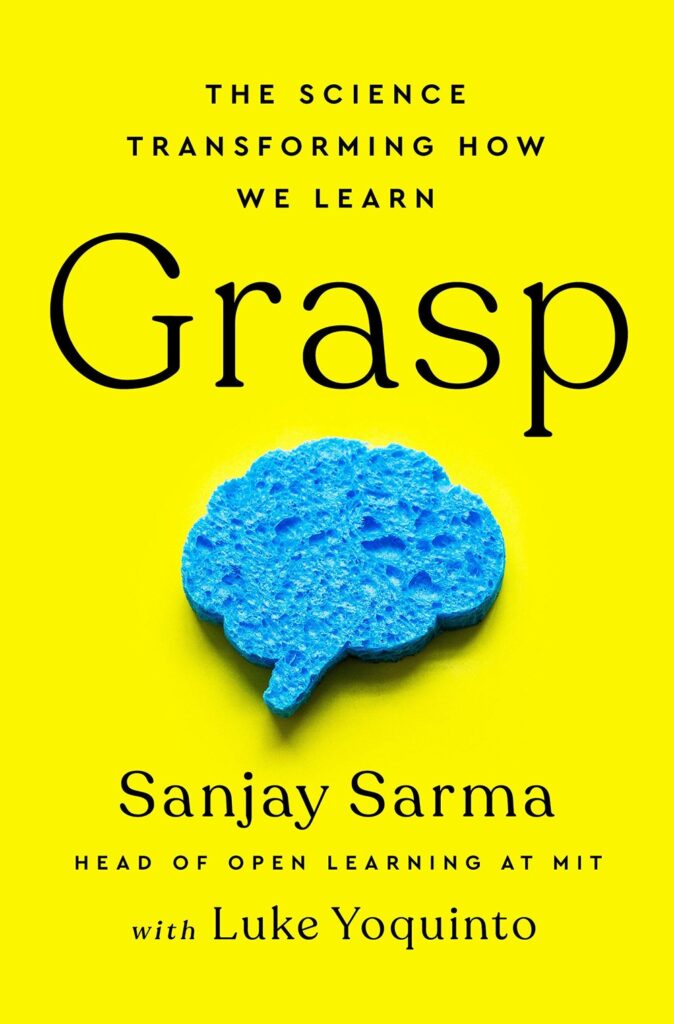Sharing my learnings from the book, Grasp by Sanjay Sarma & Luke Yoquinto
Grasp by Sanjay Sarma & Luke Yoquinto
As the head of Open Learning at MIT, renowned professor Sanjay Sarma has a daunting job description: to fling open the doors of the MIT experience for the benefit of the wider world. But if you’re going to undertake such an ambitious project, you first have to ask: How do we learn? What are the most effective ways of educating? And how can the science of learning transform education to unlock our potential, as individuals and across society? Grasp takes readers across multiple frontiers, from fundamental neuroscience to cognitive psychology and beyond, as it explores the future of learning

- education means imparting knowledge meaning understanding how that information connects to the world around you and how you can use it when the time comes. It’s not just about memorizing what our teacher says
- education systems unfairly winnow out a lot of promising minds through ‘winnowing’. IQ scores, standardized tests/exams are used as signals of innate ability, intended to separate the worthy from the unworthy. Loads of evidence show these doesn’t work.
- successful education needs engagement. School can teach theory but also put students through hands-on challenges. Instead of a final exam, students are asked to build something off in an end of semester competition. Learning can be pleasant
- spacing learning isn’t just useful, it’s fundamental. There are a couple of ways to put these into practice:
- give pre-tests to students before their actual teats
- interleaving involves alternating different subjects in study schedules
- forget more. When we forget something and recall it later, we clear a trail through the bramble of discarded associations and forge a deep & lasting connection
- curiosity can supercharge the learning process and be a big part of enhanced learning
- while discovery and imagination are effective drives, you do need old-fashioned instruction to tie your knowledge together.
- TEAL (technology-enabled active learning) has been shown to improve academic performance and help students overcome damaging factors such as stereotype threat. In TEAL, lectures, simulations, experiments and group work are merged into a cohesive experience.


Leave a Reply